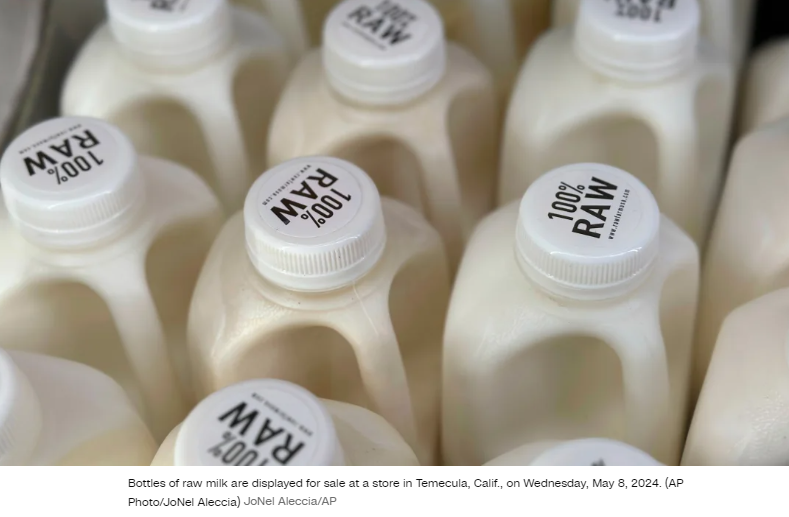With bird flu infecting dairy cattle, FDA asks some states to curb sales of raw milk

With bird flu infecting dairy cattle, FDA asks some states to curb sales of raw milk
By Brenda Goodman

As the H5N1 bird flu virus spreads through dairy cattle, the US Food and Drug Administration is asking states to take more steps to protect the public from the risks of raw milk.
In an open letter posted to the agency’s website on Thursday, it urged states to warn the public more strongly about the dangers of raw milk and to test herds that produce it for sale.
The FDA also recommended that states use their regulatory authorities to stop the sale of raw milk within the state or in areas where dairy herds have tested positive.
On Thursday, Minnesota became the 10th state to report infected herds. According to the US Department of Agriculture, 82 herds in the US have tested positive for the H5N1 virus.
The FDA doesn’t allow the sale of raw milk across state lines, but several states allow the sale of raw milk for human consumption within their borders, with varying requirements. Some states allow raw milk to be sold as pet food labeled “not for human consumption,” understanding that what people do with the milk in their own homes is up to them.
Raw milk can carry high levels of the H5N1 bird flu virus because the virus appears to infect cows through their udders. It is not yet known whether people can get bird flu by drinking milk contaminated with the virus. However, cats living on farms with infected cows have died after consuming unpasteurized milk, and three dairy workers exposed to raw milk have been infected. Beyond bird flu, the FDA says health risks of raw milk include illness, miscarriages, stillbirths, kidney failure and death.
In addition to stronger warnings about the dangers of consuming raw milk, the FDA is asking states to monitor dairy cattle herds for signs of illness that would indicate infection with H5N1 bird flu virus and tell farms to safely discard milk from sick cows.
Any raw milk or raw milk products from exposed cattle that are fed to calves or any other animals should be heat-treated or pasteurized, the FDA said.
The FDA is also calling on states to implement surveillance testing for the presence of H5N1 virus in dairy herds that might be engaged in producing raw milk and to report their results to state and federal regulatory agencies.
The agency said it would soon share new research and data on both bird flu virus in raw milk and raw milk products.
